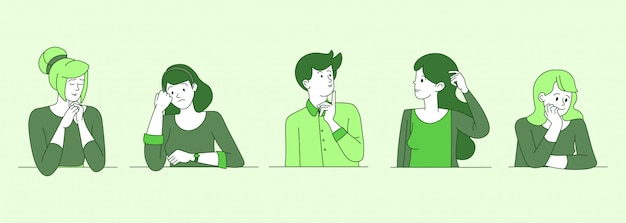Scouting the Territory
- STILL CONFUSED, BUT JUST AS INTERESTED -
So, I've done some basic research on both by just inputting both topics in the Google search engine without any other words. And the results of both topics, kind of made it harder to choose. Lucid dreaming pulled up a lot of results describing how to go about achieving awareness and control of your dreams, the benefits of successfully doing so, and the risks. However, only one scholarly article popped up about the topic being a state of consciousness and uses a sleep study. When I then searched out of body experiences (OBE), a lot of the results that popped up on the first page dealt involved scholarly research that circled around neurology. Both topics are actually really interesting, and so now I'm more confused about what topic to choose. I might just have someone I know pick randomly for me.
Honestly, when I did further searches on the topics, I found that just going through the who, what, where, why, and how was the most efficient way to find more information. What was also really helpful was randomly picking a website to browse and then searching up the keywords that were related to the topic. So for example, lucid dreaming combined with searches of awareness and consciousness. While OBE had me searching for more specifics using the words spontaneous and induced. Afterward, I changed the Google search engine to Google Scholar to check out the scholarly articles related and inputted the topics without any other keywords and then allowed it to autofill. With this, lucid dreaming was often searched with the words therapy, nightmares, benefits, treatment, frequency, evidence, personality, induction, studies, and consciousness. OBE gave me experience, illusion, seizures, induced hippocampal amnesia, review, psychology, image, virtual reality, meditation, and neuroscience. Depending on which topic I finally choose, there seems to be a good amount of things that I can talk about.
Through the research I've done so far, there seems to be interested in how lucid dreaming could be beneficial and seems to be approached a little more spiritually. While a lot of people are interested in the neuroscience behind OBE's, their potential, and the more science-based aspects of what happens to a person during an OBE. Either way, both topics seem to have really fascinating subtopics to look into for the final paper.
- POTENTIAL RESOURCES -
⮟Out‐of‐body Experience and Autoscopy of Neurological Origin
In this article, the authors look into OBE and introduce a new word, autoscopy (AS). The article is a little long, so I briefly skimmed it and found out a general idea of the paper through its abstract. According to the paper, OBE is when a person seems to be awake and is able to see their body and the world from a location that is outside of the physical body. On the other hand, AS is when a person is able to see their body through an extrapersonal space, which means through the space around us via our senses like eyes, ears, nose, but is unable to actually see the physical body. The author specifically mentions that there isn't enough information, study, or testable neuroscientific theory in regards to the two (the paper was written back in 2004), but there seems to neurological evidence that both share important mechanisms and that overall, both could be due to a "cerebral dysfunction of the TPJ [temporo-parietal junction] in a state of partially and briefly impaired consciousness."













This is definitely a promising topic. I saw a Lucid Dreaming podcast the other day. Likely there are others out there, but this one featured interviews with researchers on the topic:
ReplyDeletehttps://podcasts.apple.com/us/podcast/the-lucid-dreaming-podcast/id785523907
It might give you some ideas on what particular aspect of lucid dreaming to focus on. And other podcasts on that topic might give you ideas also. I personally like podcasts because I can listen to them while driving or exercising or doing other things.
Here is a different link, if you don't like Apple:
ReplyDeletehttps://lucidsage.com/